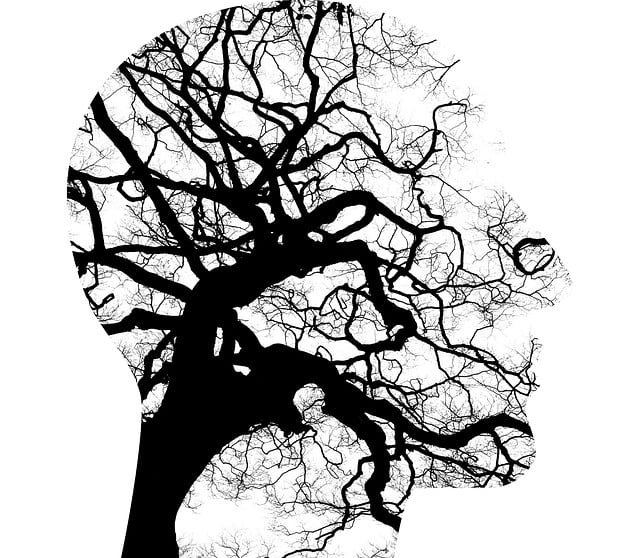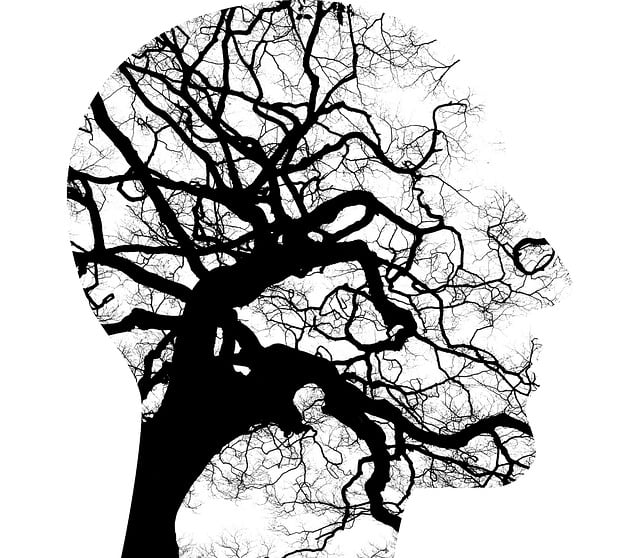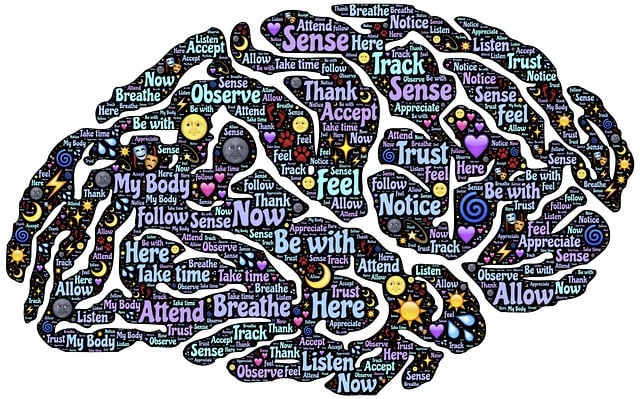Lone Tree Terminal Illness Therapy emphasizes cultural sensitivity in mental healthcare, acknowledging that each client's unique background shapes their mental health perspective and treatment expectations. Therapists must navigate these differences, creating safe spaces that facilitate personalized self-care routines and reduce stress within diverse communities. By embracing cultural diversity, the therapy center improves therapeutic relationships and ensures tailored treatments respectful of individual identities. This culturally responsive approach is transformative for addressing terminal illnesses, especially by understanding and respecting distinct beliefs around death, grief, and coping, leading to better therapy outcomes. In diverse communities, mental health professionals integrate traditional healing methods while ensuring patient safety, fostering a supportive environment for all seeking assistance.
In an increasingly globalized society, cultural sensitivity is paramount in mental healthcare. The field must adapt to serve diverse communities effectively, addressing unique challenges like those presented by terminal illness therapies. As such, understanding cultural diversity and implementing culturally competent practices are essential for therapists.
This article explores these topics, delving into the impact of cultural sensitivity on therapy outcomes, the challenges faced by professionals in diverse settings, and providing a practical guide to culturally competent practice. Case studies, including insights from Lone Tree Terminal Illness Therapy, demonstrate successful approaches.
- Understanding Cultural Diversity in Mental Healthcare
- The Impact of Cultural Sensitivity on Therapy Outcomes
- Challenges Faced by Mental Health Professionals in Diverse Communities
- Strategies for Culturally Competent Practice: A Guide for Therapists
- Case Studies: Successful Cultural Sensitivity in Lone Tree Terminal Illness Therapy
Understanding Cultural Diversity in Mental Healthcare

In the realm of mental healthcare, understanding cultural diversity is paramount to delivering effective treatment. With a growing and diverse population, it’s crucial for practitioners like Lone Tree Terminal Illness Therapy to embrace this complexity. Every individual enters therapy with their own unique cultural lens, shaped by their background, beliefs, and experiences. This cultural context significantly influences how they perceive and express mental health issues, as well as their expectations from treatment. Therefore, therapists must be equipped to navigate these nuances to foster a safe and supportive environment for all clients.
By recognizing and valuing cultural diversity, Lone Tree Terminal Illness Therapy can promote positive thinking and self-care routine development for better mental health. Therapists can incorporate culturally sensitive practices that address specific community needs, including stress reduction methods tailored to diverse populations. This approach not only enhances therapeutic outcomes but also strengthens the bond between care providers and clients, ensuring that treatments are accessible, effective, and respectful of individual cultural identities.
The Impact of Cultural Sensitivity on Therapy Outcomes

In the realm of mental healthcare, cultural sensitivity is a game-changer, especially when addressing terminal illnesses like Lone Tree Terminal Illness. It’s not just about providing treatment; it’s about understanding and respecting diverse belief systems and backgrounds. When therapists demonstrate cultural sensitivity, they create a safe space for clients to open up and share their unique perspectives, fostering trust and engagement. This becomes particularly crucial in the context of Lone Tree Terminal Illness Therapy, where individuals from various cultural groups may have distinct views on death, grief, and coping mechanisms.
By integrating Empathy Building Strategies and Crisis Intervention Guidance tailored to these cultural nuances, therapists can significantly enhance therapy outcomes. Mental Health Policy Analysis and Advocacy also plays a pivotal role in ensuring that culturally sensitive practices are not just implemented but also supported by broader systemic changes. This holistic approach not only improves the quality of care but also ensures that every client receives respect and understanding, ultimately leading to more positive therapeutic experiences.
Challenges Faced by Mental Health Professionals in Diverse Communities

In diverse communities, mental health professionals often face unique challenges that require a nuanced approach. These include navigating cultural barriers to care, understanding the impact of systemic issues such as discrimination and social inequality, and recognizing the influence of traditional healing practices alongside Western medicine. For instance, in areas like Lone Tree, where terminal illness therapy is sought, cultural sensitivity becomes paramount. The community’s unique tapestry of beliefs, customs, and support systems plays a significant role in how individuals perceive and engage with mental health services.
Effective crisis intervention guidance demands a deep understanding of these cultural nuances. Communication strategies must be tailored to respect and incorporate traditional healing methods while ensuring patient safety and comfort. Moreover, efforts to reduce the stigma associated with mental illness must be sensitive to cultural contexts, as what constitutes stigma varies widely across communities. By embracing these challenges head-on, mental health professionals can provide more inclusive and effective care, fostering a supportive environment for all individuals seeking assistance, regardless of their background.
Strategies for Culturally Competent Practice: A Guide for Therapists

In the pursuit of providing effective and compassionate mental healthcare, therapists must embrace cultural sensitivity as a cornerstone of their practice. This involves understanding and appreciating the diverse cultural backgrounds, beliefs, and values of their clients, especially when working with communities like those in Lone Tree Terminal Illness Therapy settings. One of the first steps is to educate themselves about various cultures, including learning about common psychological concepts within different ethnic groups. This knowledge helps therapists avoid assumptions and misinterpretations that may hinder progress during therapy sessions.
Furthermore, developing a robust risk management planning framework tailored for mental health professionals can facilitate culturally competent practice. Therapists should incorporate strategies to navigate cultural barriers, address potential ethical dilemmas, and ensure patient safety while respecting confidentiality. Engaging in continuous professional development through workshops, training programs, and even listening to Mental Wellness Podcast Series Production can provide valuable insights. Additionally, burnout prevention strategies are essential, as they enable healthcare providers to remain empathetic and attentive, thereby fostering a supportive environment that encourages clients from diverse backgrounds to open up and heal.
Case Studies: Successful Cultural Sensitivity in Lone Tree Terminal Illness Therapy

In the realm of mental healthcare, cultural sensitivity is a cornerstone of effective treatment, especially when addressing terminal illnesses. Case studies demonstrate that integrating cultural considerations into therapy, such as Lone Tree Terminal Illness Therapy, can lead to profound improvements in patient outcomes. For instance, one successful program designed and implemented by mental health professionals highlighted the importance of tailoring therapeutic approaches to align with diverse cultural beliefs and practices. This involved incorporating traditional healing methods alongside Western psychiatric treatments, fostering a holistic environment that respects and validates each patient’s unique background.
The Mental Health Education Programs Design approach played a pivotal role in this success, ensuring healthcare providers received specialized training on cultural competency. Additionally, Social Skills Training was integrated to address communication gaps, enhancing the therapeutic bond between patients and caregivers. Ultimately, these initiatives improved mental wellness outcomes, demonstrating that culturally sensitive practices not only respect diversity but also revolutionize terminal illness therapy by making it more inclusive and effective.
In conclusion, cultural sensitivity is a pivotal aspect of mental healthcare practice, significantly influencing therapy outcomes. As communities become increasingly diverse, mental health professionals must navigate the complexities of cultural differences to provide effective care. The article has explored these nuances, from understanding cultural diversity in mental healthcare to implementing culturally competent strategies. Case studies, such as those involving Lone Tree Terminal Illness Therapy, highlight successful approaches that foster inclusive and therapeutic environments. By recognizing and addressing cultural challenges, therapists can enhance patient well-being and ensure equitable access to mental health services for all communities.














